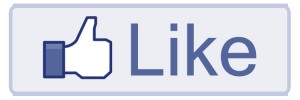MONDAY, 28 MAY 2012
Cecilie Schou Andreassen leads the project “Facebook Addiction” at the University of Bergen. Together with colleagues, they have developed a new psychological scale to measure Facebook addiction, the first of its kind worldwide. Results of the new study using the Bergen Facebook Addiction Scale (BFAS) were published in the April 2012 issue of the journal Psychological Reports.Excessive use of social media has been linked to poor and inadequate sleep, which could be detrimental to academic performance. Facebook, which boasts 900 million users worldwide as of March 2012, is by far the most popular social networking site and Dr Andreassen hopes to use the new scale to investigate problem behaviour linked to Facebook use.
Like gambling and video game addictions, internet addiction is one of many behavioural impulse disorders. Andreassen believes Facebook addiction may be a specific form of Internet addiction and her study shows that the symptoms of Facebook addiction resemble those of drug addiction.
A total of 423 students (227 women, 196 men) participated in a self-report questionnaire consisting of six statements relating to Facebook use. Responses of "often," or "very often" to at least four of the six questions categorised study participants as Facebook addicts.
Those at greatest risk of dependency included women as well as socially anxious and younger users. High scores on the scale were associated with personality traits like extraversion and neuroticism, whereas organised people were less likely to become addicted. A high score on the BFAS was also linked with going to bed very late and getting up very late. Andreassen hopes the scale will be used for the estimation of Facebook addiction prevalence in the general population worldwide and eventually facilitate treatment research.
Written by Camilla d’Angelo
doi: 10.2466/02.09.18.PR0.110.2.501-517

